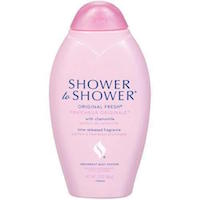
In her suit, Eva Echeverria says that she developed ovarian cancer as a “proximate result of the unreasonably dangerous and defective nature of talcum powder.” Her lawyer says that, more than anything, she just wants to get a message out to help other women in similar circumstances. In addition, he hopes that the ruling will ultimately help lead to stronger warning labels on J&J’s talc-based products.
Dr. David Cramer has also called for stronger warnings on talc products in the past, but has so far been met with little success. He was the lead researcher of a 2016 study that found women who use talcum powder on or around their genitals were up to 33 percent more likely to develop ovarian cancer. He says that many women may be unaware of the danger in which they’re placing themselves by routinely using talc products, and that fewer women might use them if they knew of the potential consequences.
The vast majority of the millions awarded to plaintiffs in previous talc cases was doled out as punishment to Johnson & Johnson for an alleged cover-up. Internal documents suggest the company was aware of the dangers posed by its talcum powder products and has completely failed to act on them.
An additional document from an independent consultant to J&J in 1997 states that talc isn’t only linked to the development of ovarian cancer, but that denying this would be “denying the obvious,” further bolstering the claim that the corporation has repeatedly failed to appropriately warn the public of the threat posed by its talc products.
Baby powder is estimated to be an $18.8 million market for talc the US alone, and close to 20% is dominated by Johnson & Johnson. Perhaps predictably, then, a spokesperson for the corporation stated that it will appeal the $417 million Los Angeles ruling because “science supports the safety of” its talc-based products.
Thousands of talc cases are pending against J&J across the country. Each may provide another example of evidence to the contrary.
